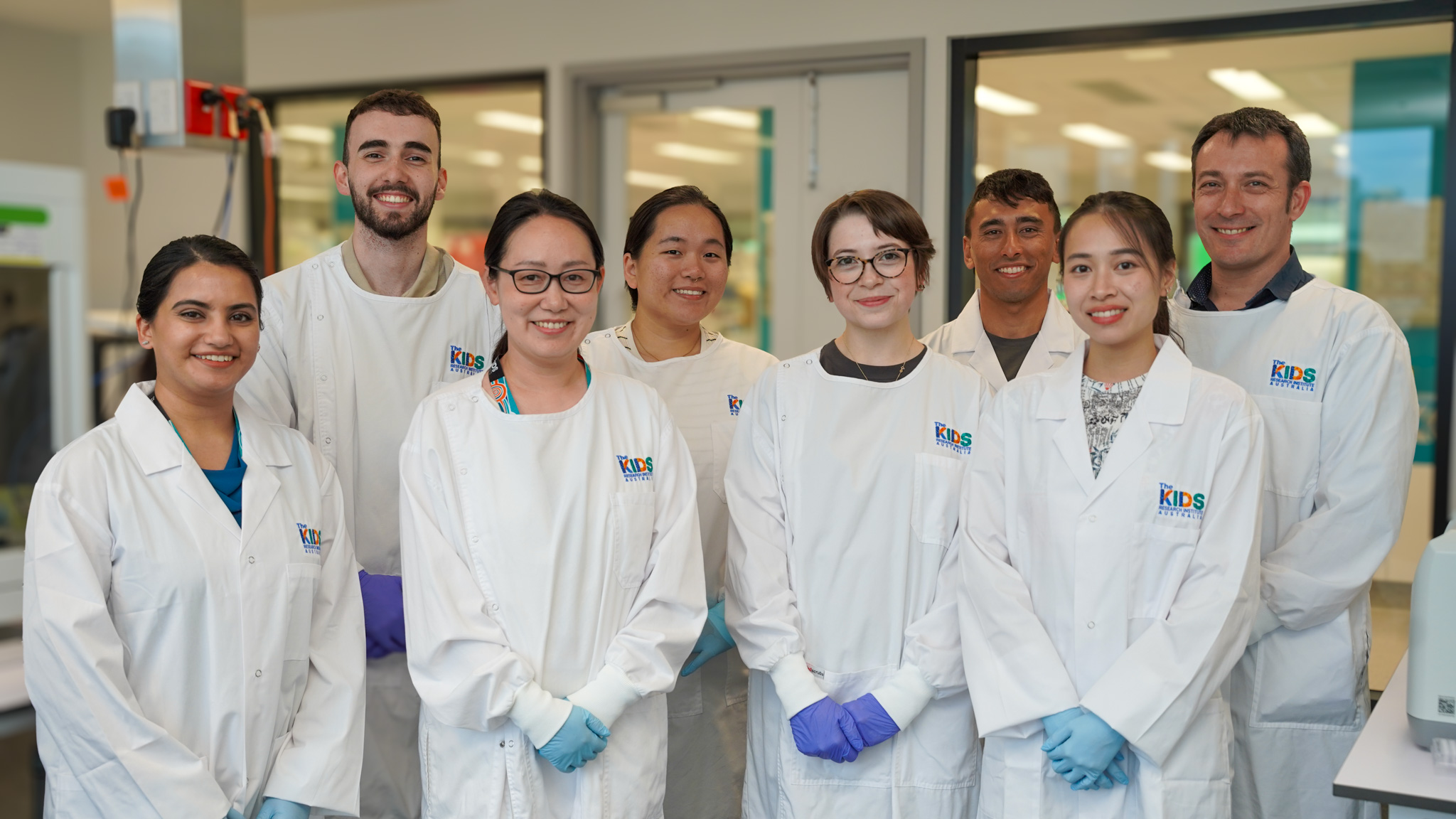Search
Research
Development of new preclinical models of childhood leukaemiaSébastien Laurence Rishi S. Malinge Cheung Kotecha PhD BPharm (Hons) MBA PhD MB ChB (Hons) MRCPCH FRACP PhD Laboratory Head, Translational Genomics
Research
Exploring clonal diversity in paediatric B-cell leukaemia to identify new therapeutic weaknessSébastien Rishi S. Laurence Timo Malinge Kotecha Cheung Lassmann PhD MB ChB (Hons) MRCPCH FRACP PhD BPharm (Hons) MBA PhD BSc (Hons) MSc PhD
Research
Targeting DYRK1A: a key player in Down syndrome LeukaemogenesisSébastien Malinge PhD Laboratory Head, Translational Genomics in Leukaemia, Senior Research Fellow (University of Western Australia), Adjunct Senior

The Translational Genomics in Leukaemia team is focused on identifying the causes of leukaemia, with the goal of developing new targeted treatments to improve quality of care and long-term survival for all children with leukaemia.
Research
A biobank of pediatric patient-derived-xenograft models in cancer precision medicine trial MAPPYACTS for relapsed and refractory tumorsPediatric patients with recurrent and refractory cancers are in most need for new treatments. This study developed patient-derived-xenograft (PDX) models within the European MAPPYACTS cancer precision medicine trial.
Research
Preclinical Assessment of Dactinomycin in KMT2A-Rearranged Infant Acute Lymphoblastic LeukemiaInfants with KMT2A-rearranged B-cell acute lymphoblastic leukemia (ALL) have high rates of relapse and poor survival compared with children. Few new therapies have been identified over the past twenty years. The aim of this study was to identify existing anti-cancer agents that have the potential to be repurposed for the treatment of infant ALL.
Research
It is more “unbalanced” than you thinkSébastien Malinge PhD Laboratory Head, Translational Genomics in Leukaemia, Senior Research Fellow (University of Western Australia), Adjunct Senior
Research
The ETO2 transcriptional cofactor maintains acute leukemia by driving a MYB/EP300-dependent stemness programTranscriptional cofactors of the ETO family are recurrent fusion partners in acute leukemia. We characterized the ETO2 regulome by integrating transcriptomic and chromatin binding analyses in human erythroleukemia xenografts and controlled ETO2 depletion models. We demonstrate that beyond its well-established repressive activity, ETO2 directly activates transcription of MYB, among other genes.
Research
Preclinical efficacy of azacitidine and venetoclax for infant KMT2A-rearranged acute lymphoblastic leukemia reveals a new therapeutic strategyInfants with KMT2A-rearranged B-cell acute lymphoblastic leukemia (ALL) have a dismal prognosis. Survival outcomes have remained static in recent decades despite treatment intensification and novel therapies are urgently required.
Research
Building the Future Therapies for Down Syndrome: The Third International Conference of the T21 Research SocietyResearch focused on Down syndrome has increased in the last several years to advance understanding of the consequences of trisomy 21 (T21) on molecular and cellular processes and, ultimately, on individuals with Down syndrome. The Trisomy 21 Research Society (T21RS) is the premier scientific organization for researchers and clinicians studying Down syndrome.
